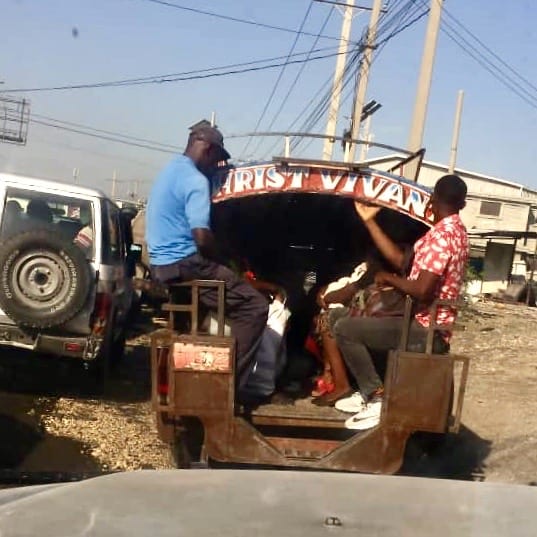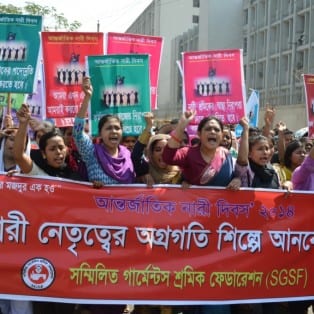Just as the magnitude of the COVID-19 pandemic highlights the massive global economic and social inequality around the world, with workers in the informal economy and supply chains, and migrant workers—many of whom are women—especially marginalized, so, too, does it...

The Solidarity Center assists workers in the informal economy, such as market vendors in Zimbabwe, come together to assert their rights and raise living standards. Credit: ZCIEA
Some 2 billion people work in the informal sector as domestic workers, taxi drivers, and street vendors, many of them women workers. Informal economy work now comprises the majority of jobs in many countries and is increasing worldwide. Although informal economy workers can create up to half of a country’s gross national product, most have no access to health care, sick leave or support when they lose their jobs, and they have little power to advocate for living wages and safe and secure work.
The Solidarity Center is part of a broad-based movement in dozens of countries to help workers in the informal economy come together to assert their rights and raise living standards. For instance, three affiliates of the Central Organization of Trade Unions-Kenya (COTU-K), a Solidarity Center partner, signed agreements with informal worker associations to unionize the workers, enabling them to access to the country’s legal protections for formal-sector employees.
Find out more about informal workers gaining power by joining together in unions and worker associations in this Solidarity Center-supported publication, Informal Workers and Collective Action: A Global Perspective.
Learn More about Our Partners!
The Solidarity Center, as part of the global labor movement, is proud to closely work with trade unions, civil society organizations, academic institutions, progressive private foundations, labor-friendly businesses, governments and dozens of generous individuals to...
COVID-19: Bangladesh Garment Workers Stand Up for Rights
The COVID-19 crisis is especially devastating for the 50 million workers who make clothes, shoes and textiles in factories around the world. With declining sales, corporate retailers are canceling orders and factories are laying off workers, most without pay. Those...
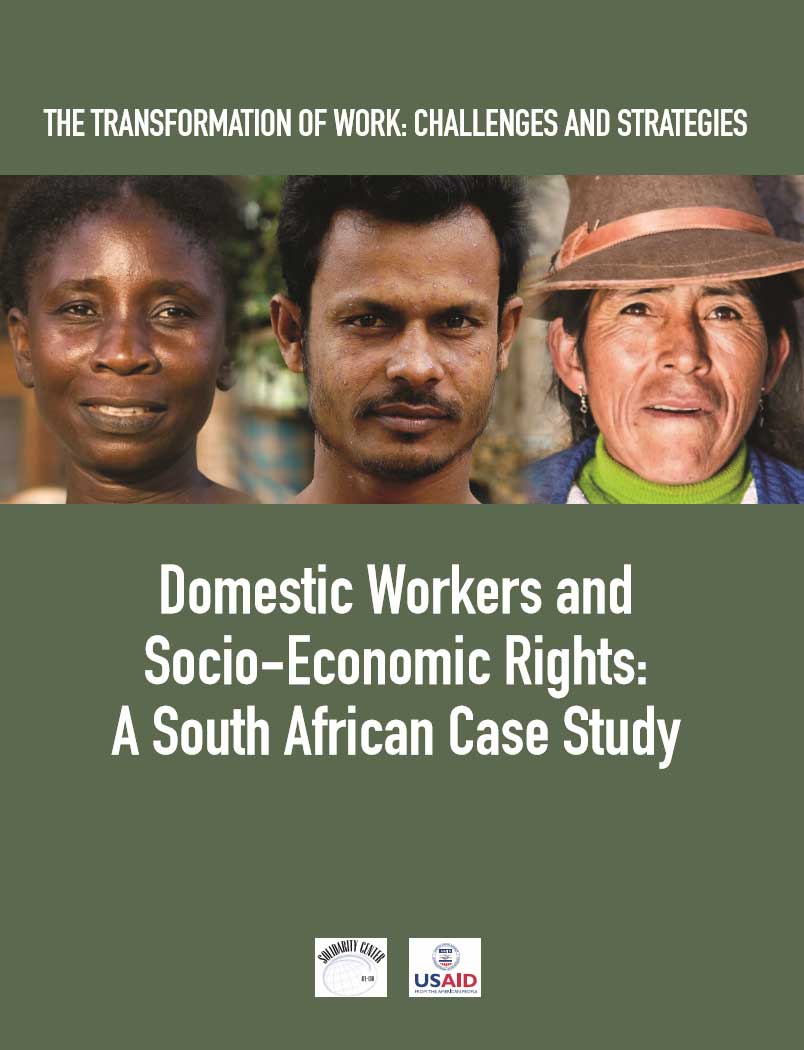
Domestic Workers and Socioeconomic Rights: A South African Case Study (2013)
This report explores the challenges of empowering domestic workers in South Africa through the traditional trade union focus on worker rights, democratic voice and collective action. This Solidarity Center report is part of a multiyear research project, funded by the...
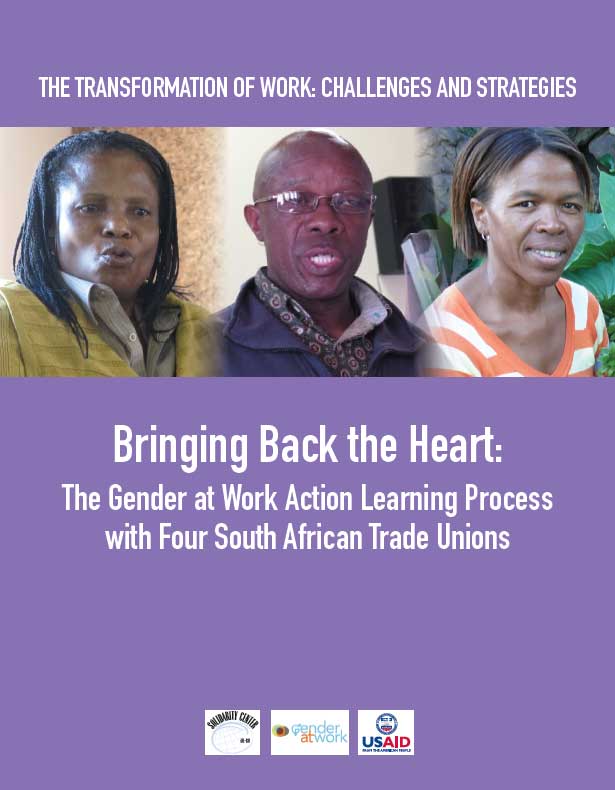
Bringing Back the Heart: The Gender at Work Action Learning Process with Four South African Unions (2013)
Four South African unions took part in a unique process with the South Africa Gender Action Learning Program and Labour Research Service to challenge male–dominated, hierarchical cultures. This report describes the step-by-step journey that led to more women joining...
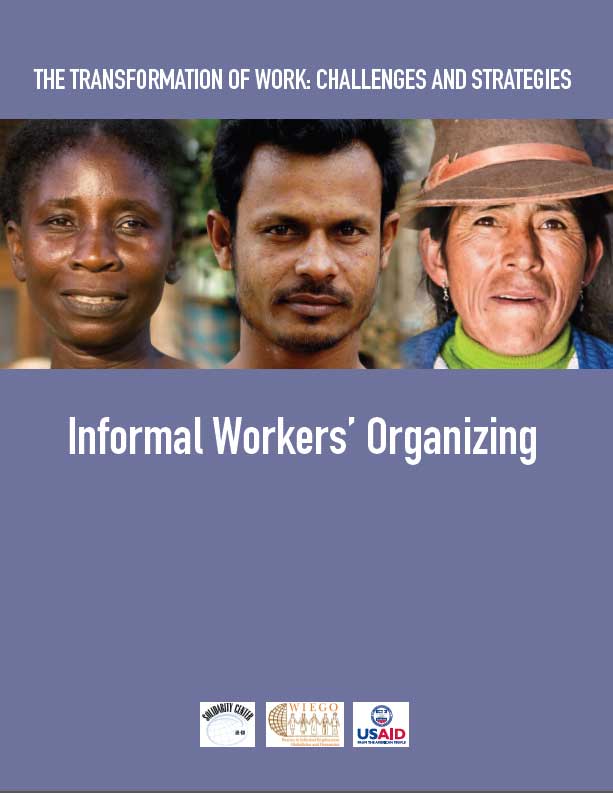
Informal Workers’ Organizing (WIEGO, 2013)
In overviewing self-organizing among such informal economy workers as waste pickers, domestic workers and construction workers, this report finds the lines are increasingly blurred between jobs in the formal and informal economies. This Solidarity Center report is...
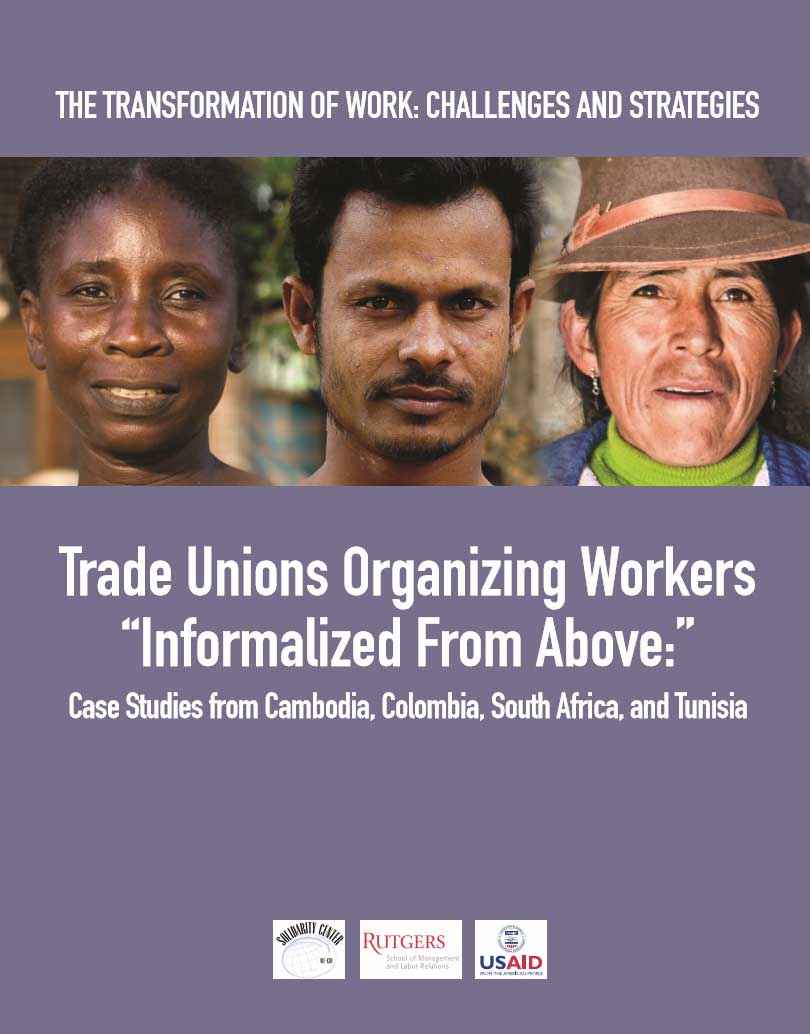
Trade Unions Organizing Workers “Informalized from Above”: Case Studies from Cambodia, Colombia, South Africa and Tunisia (Rutgers, 2013)
Four case studies examine successful union organizing among workers whose jobs have been privatized, outsourced or contracted out. This Solidarity Center report is part of a multiyear research project, funded by the U.S. Agency forInternational Development, to study...
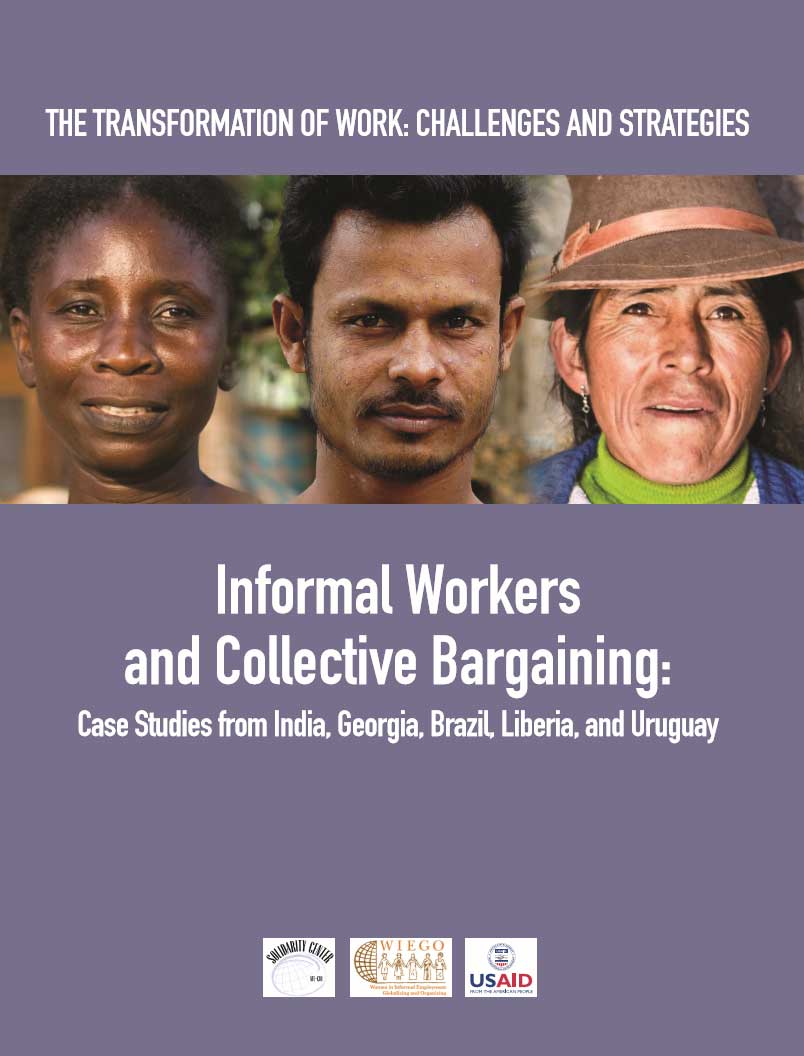
Informal Workers and Collective Bargaining: Case Studies from India, Georgia, Brazil, Liberia and Uruguay (WIEGO, 2013)
This report details a set of case studies on collective bargaining by informal workers in four different countries: Waste pickers in Minas Gerais state in Brazil, beedi workers in India, Georgia minibus taxi workers and street vendors in Monrovia, Liberia. The study...
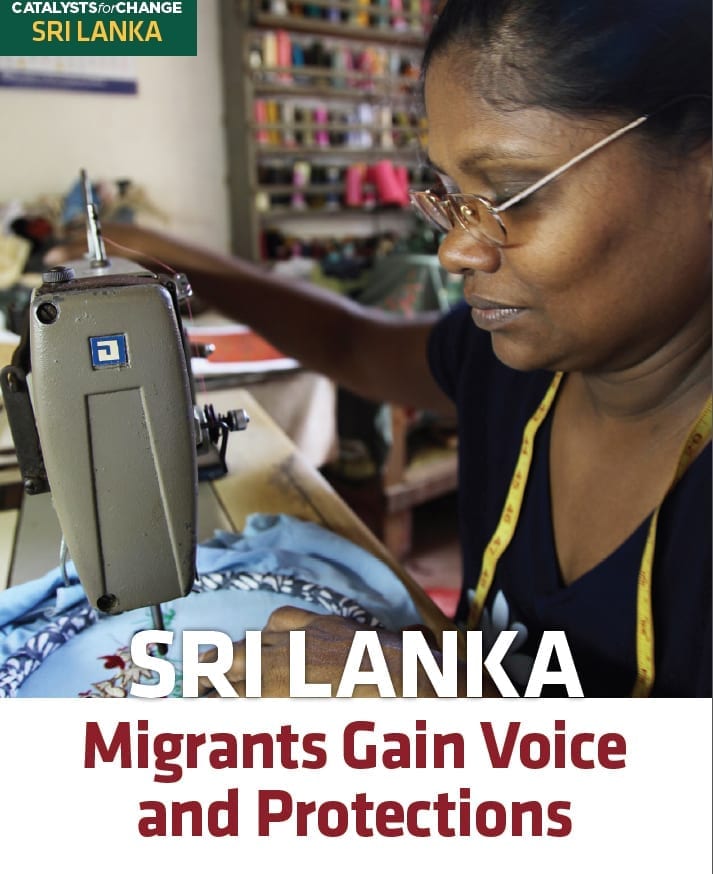
SRI LANKA: Migrants Gain Voice and Protections (2013)
The Migrant Services Center, a Solidarity Center partner, is assisting migrant workers and their families in Sri Lanka while championing structural change through legislative and governmental processes, and offers a model for other labor and worker rights...

